The hit coming-of-age series Overcompensating brings a raw, riotous energy, pairing humor with deep emotional truths. Created by Scott King and Benito “Benny” Skinner, the series follows Benny, a closeted college student, and his friends as they navigate identity, friendship, and the many ways we all try to prove ourselves.
We caught up with editors Todd Downing, ACE and Amelia Allwarden, ACE, to talk about carving out the series—from TikTok-born performances to beer-chugging madness—and how Evercast kept the creative flow moving across time zones.
This interview has been edited for length and clarity. Warning: spoilers!
What would you say was unique about the series from a creative standpoint?
Amelia Allwarden, ACE: I think just balancing the comedy with some real emotional stakes in the series. It’s what makes the show smart and unique. It can be crazy and hilarious and raunchy—but because [Scott King] and [Benito “Benny” Skinner] are such good writers, the characters feel like real people, so when real things are happening to them, it feels like there are stakes and real emotion. That takes really good writing. And as an editor, it’s a fun challenge because you can weave it in a lot of different directions and kind of walk the edge of making things funny but also feel real. If you go too far into sketch comedy, they just feel like caricatures. And if you take away too much of the absurdity and the sex and the raunchiness, then it's just not how to truthfully tell this story. You kind of need the R-rated version to show what this experience is really like.
Todd Downing, ACE: Yeah. Also, this is the first show I've done, I think, where the cast comes almost entirely from TikTok and Instagram. They've all created their own characters and comedy. And then there were seasoned actors like Adam DiMarco and Connie Britton. But a large part of the cast is comics that were online-famous. So that was interesting—and they were fantastic actors. I think comedians are good actors. There's something about that—dramatic actors can't always do comedy, but I feel like comedic actors can do drama. I'm not the first person to say that, but I think it's true.
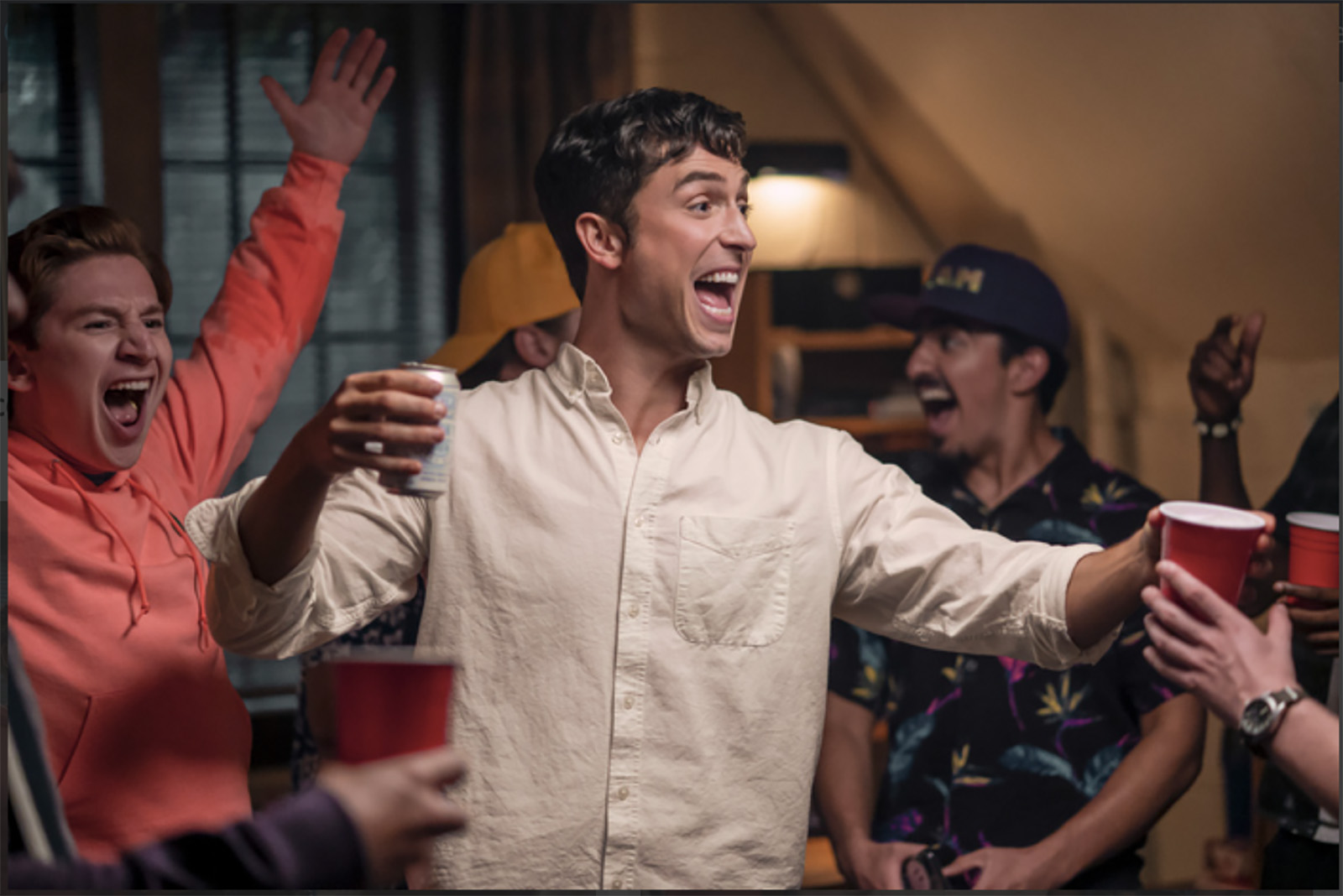
What was unique about working on this show from a technical standpoint?
Todd: Well, it was fully remote, so we relied on Evercast quite a bit—I would say daily. For me, it wasn’t that different because a lot of the shows I’ve been doing lately have been remote. Amelia’s been doing in-person though, so I think for her, it was a new world.
Amelia: Yeah, I haven’t edited entirely remotely on a job since 2020. Everything else I’ve done since has been at least hybrid. What’s amazing about [hybrid] is that you can collaborate in person, but then use Evercast to bridge the gap and make it so that we feel like we’re in person. In terms of Overcompensating, we relied entirely on Evercast—for meetings, spotting sessions, to show each other scenes, and sometimes just to chat. My assistant editor, McKenna Cook, and I collaborate a lot on Evercast in order to just catch up, even if we’re not playing back material—just talking on video chat and kind of having an open room to work in.
How did Evercast address some of the technical challenges you faced?
Todd: Well, of course Evercast helped solve the challenge that we're all in different places—and it worked. Of all the remote jobs I've done, this one felt the smoothest. Everyone was just kind of available and could hop on at any point—whether it was Benny wanting to see something that we had done, or Scott wanting to watch a cut.
Amelia: Even Charli XCX used it! She was camera-off, but yes, Charli XCX uses Evercast—you heard it here first! But yeah, we had quite a few spotting sessions for graphics and visual effects, and we used the draw tool on Evercast a lot, which was helpful. If you're in person, it's really easy to point to a screen and talk about it, but Evercast was really good for drawing where we thought blocks of text would go or notifications might pop up.
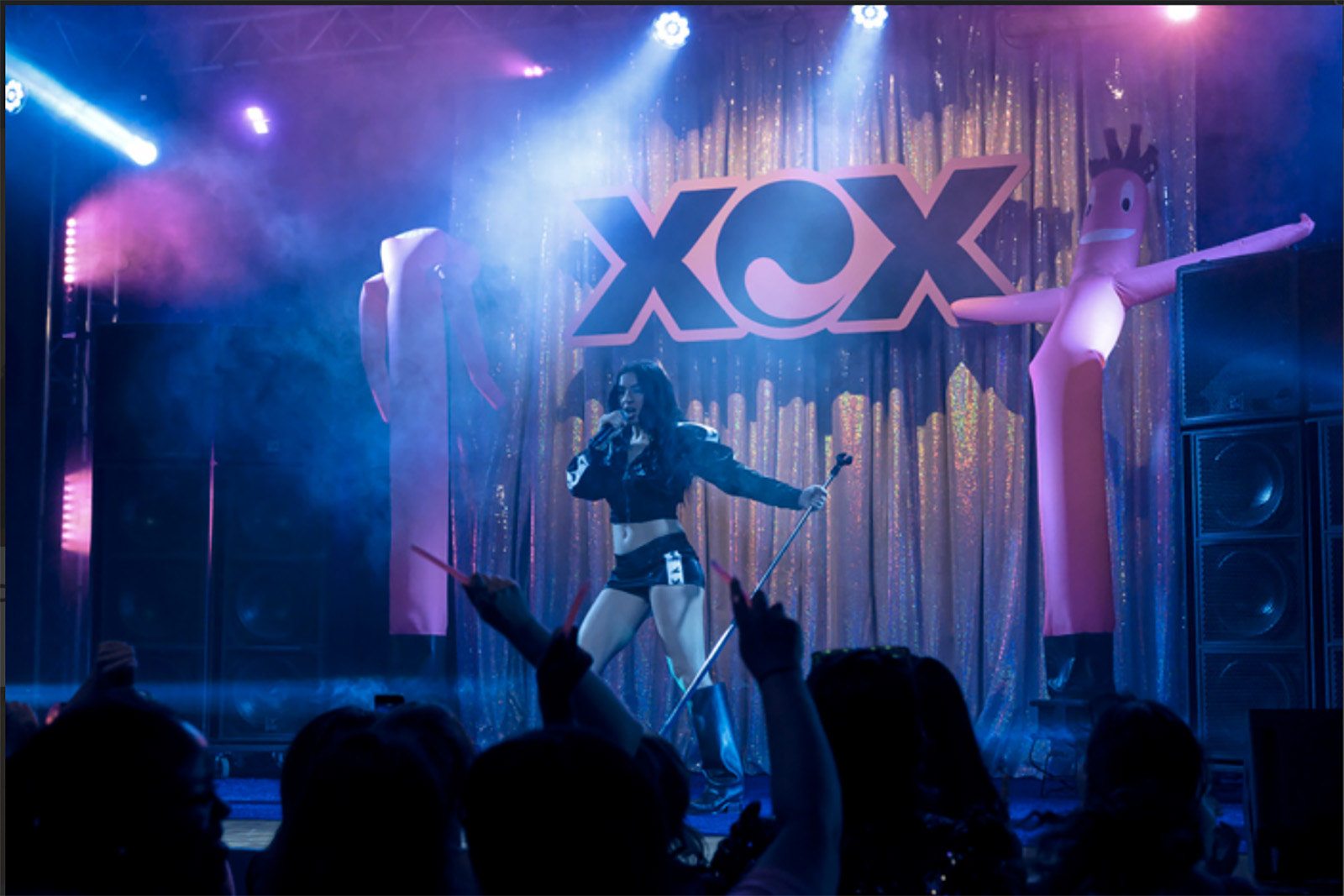
Where was the team distributed?
Todd: They were shooting in Toronto, and we were editing while they were shooting, so Benny and Scott would sometimes hop onto Evercast from Toronto. We had another editor, Christian Kinnard, who did episode seven—he was in Portland, and I think his AE was in Salt Lake City or something like that. And I was editing from Tucson at my parents' house quite a bit. I did two weeks from New York also.
Amelia: Yeah, and I had to go to New York for a week while we were working, so I just hopped in. We had the flexibility to go anywhere. Scott was in a lot of different locations: LA, Palm Springs, and a couple of different other places. But you know, wherever we were, we could connect. Todd and I were like a five-minute drive from each other.
What value do you feel that Evercast brought to the table?
Todd: Just being in instantaneous contact. I think there's something about seeing each other's face rather than just being on the phone or texting. And you can watch the cut simultaneously, rather than at different times and trying to point to which part you're talking about.
Amelia: Yeah. I like being able to watch the faces of people I'm showing the cut to. I'll just be looking at their faces instead of looking at the cut! But I do think that's really valuable because when you're sitting in a room showing people a cut, you can feel how their body moves and look at it through their eyes, but you’d never be staring at their faces while they're watching. So it's interesting on Evercast—you get a unique perspective where you're seeing when they laugh, or smile, or frown.
Todd: Yeah, because usually they're sitting behind you, and you're just sort of trying to feel the vibe, like, do they love it? Do they hate it?
What other tools were you using, as far as hardware and software go?
Todd: I have a Mac Studio. And since we were remote, we used Jump Desktop. I think the Avids were in Universal City? They were somewhere, not in our homes. So we used Jump Desktop [to remote in].
Amelia: McKenna, my assistant editor, is really good at whipping up temps, and I think she used InDesign, Photoshop, and After Effects. She mostly did temp VFX in Avid, but to animate text messages and things like that, we went out to After Effects.
Todd: And then Voice Memo on our phones for temping.
Amelia: Oh, yeah! In order to temp the voices for “Slut Slayer: Berlin,” we did Voice Memo recordings. Todd was always doing Benny's temp, and I was always doing Carmen's temp, and then we would just be sending each other voice notes constantly. I would go in my closet and act it out.
Todd: Just saying the most insane things back to each other.
Amelia: Yeah. When I had to be “Berlin Slut” begging for her life, I would be in my closet, hoping none of my neighbors could hear me screaming, like, “Please don't kill me!” And then I was like, wow, no one knocked on my door to see if I was okay…
Now you know who you can trust! Speaking of, I hear that a lot of scenes or moments were improvised in Overcompensating. Any favorites? How did you approach integrating them in editorial?
Amelia: There are a million! In episode two’s pregame scene, everything Benny’s saying— offering them drinks, offering them wings, the way they're dancing on the sleeping roommate, and anything to do with the crying girl and the neck brace. Just random bits and pieces. The sequence when Benny is chugging all the beers and eating a live betta fish is basically one long take of him doing all sorts of crazy stuff with two cameras that I cut together to feel more cohesive. That's all just him going nuts, pouring the beer on his head and throwing things around. I think that's the beauty of it—they just roll on Benny and let him go crazy, and then it's up to us to put it together in a really fun way. When I saw the footage for that, I had no idea how I was going to put it together. But I made selects and then just kind of whittled it into a story.
And then Hailee, the roommate character—you never know what's going to come out of her mouth next. A lot of her most iconic lines are improv. Like, in episode two when Carmen says that her brother died, Haley says, “Pisses me off!” I forget what her scripted line actually was, but she would do variations. So just whatever makes me laugh in the dailies, I'm just squirreling that away and seeing if I can incorporate it into the scene.
Todd: The “Edward Fortyhands” scene was also just going crazy and filming and seeing what happens. But, you know, a lot of them are comics. They'll just do alt lines all the time, and sometimes you're like, “Oh God, they're both funny, all three are funny!” So you had to just pick one.
Amelia: In the finale, there's a scene where Peter says something like, “You gotta do the Caesar ceremony in public,” and then Gabe says, “In front of everybody?” and he goes, “That's what public means, dawg.” That's just him riffing, and it made me laugh so hard that I had to get it into the cutting pattern.
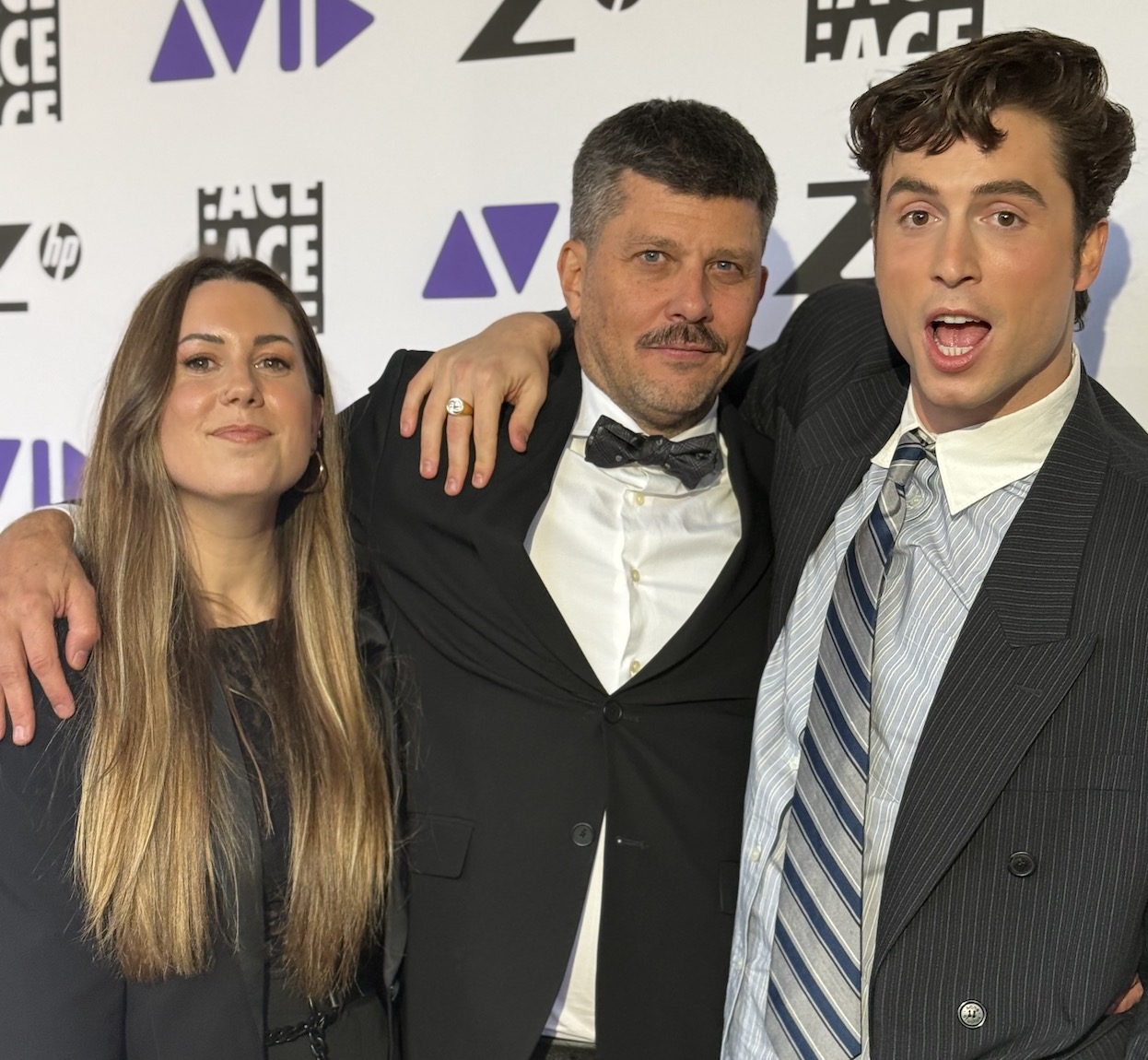
You worked on separate episodes, but I understand there was some collaboration between the two of you. Can you walk me through how you worked together?
Todd: Well, we met before the show started and had a leisurely coffee for a couple hours, just sort of got to know each other. We had followed each other on the website formerly known as Twitter, we realized. And from there, we just stayed in contact. It wasn't like we shared episodes, but we were definitely showing each other stuff and talking all the time, just to make it all gel into one coherent whole, rather than eight individual half-hours.
Amelia: We talked a lot about where the handoffs were, too: Todd's on one, I'm on two, he's on three, I'm on four, and he's on five. So when we were bouncing back, it was like, okay, where does one thing end and the next thing begin?
Todd: Yeah, there was a bit of, “Where does the episode end?” when you're handing stuff back. Episode three, I think, starts a frame later from where two ends. So we had to make sure we were using the same take, and there was maybe a little overlap—making sure that all lined up.
Amelia: Yeah, and I'm talking to Todd, like, “Emotionally, where is Benny when we're ending the episodes?” so I have a sense of that when I'm getting into his headspace at the beginning of episode two and cutting those scenes together. And Todd and I would show each other scenes that we were working on, or little clips or takes, just to check our own instincts. Like, Todd has said, “Am I crazy for putting this in,” or “Do you still think this is funny?” or “I've lost perspective on this thing.” So sometimes we’d just throw it in each other's bins in Avid, and show each other things on Evercast.
Todd: Well, there's such a wealth of jokes—some scripted, some improv—and sometimes Scott and Benny would throw out alts on set to [the directors, Desiree Akhavan and Daniel Gray Longino]. So, we’d just help each other decide which one to use or which is the funniest.
The story is obviously very personal for Benny, but I know so many people feel they relate to the show as well. I'm curious how you feel that this show brings something new to the space or is particularly meaningful for you.
Todd: As a gay man, there are so many things. I’m from a different generation, a little bit older, so it wasn't the exact same way of coming out that Benny did, but there are just things that you notice and think, “Oh, that's always going to happen to every gay guy who's coming out of the closet.” And one thing that hasn't been explored so much is the real love story in this series, between Benny and Carmen—how the gay guy/straight girl bond is so strong. I haven't really seen anyone put it out there. I guess Will & Grace, but this just has so much more. It really explores that dynamic in such a great way. The messiness of it too. I found that pretty profound.
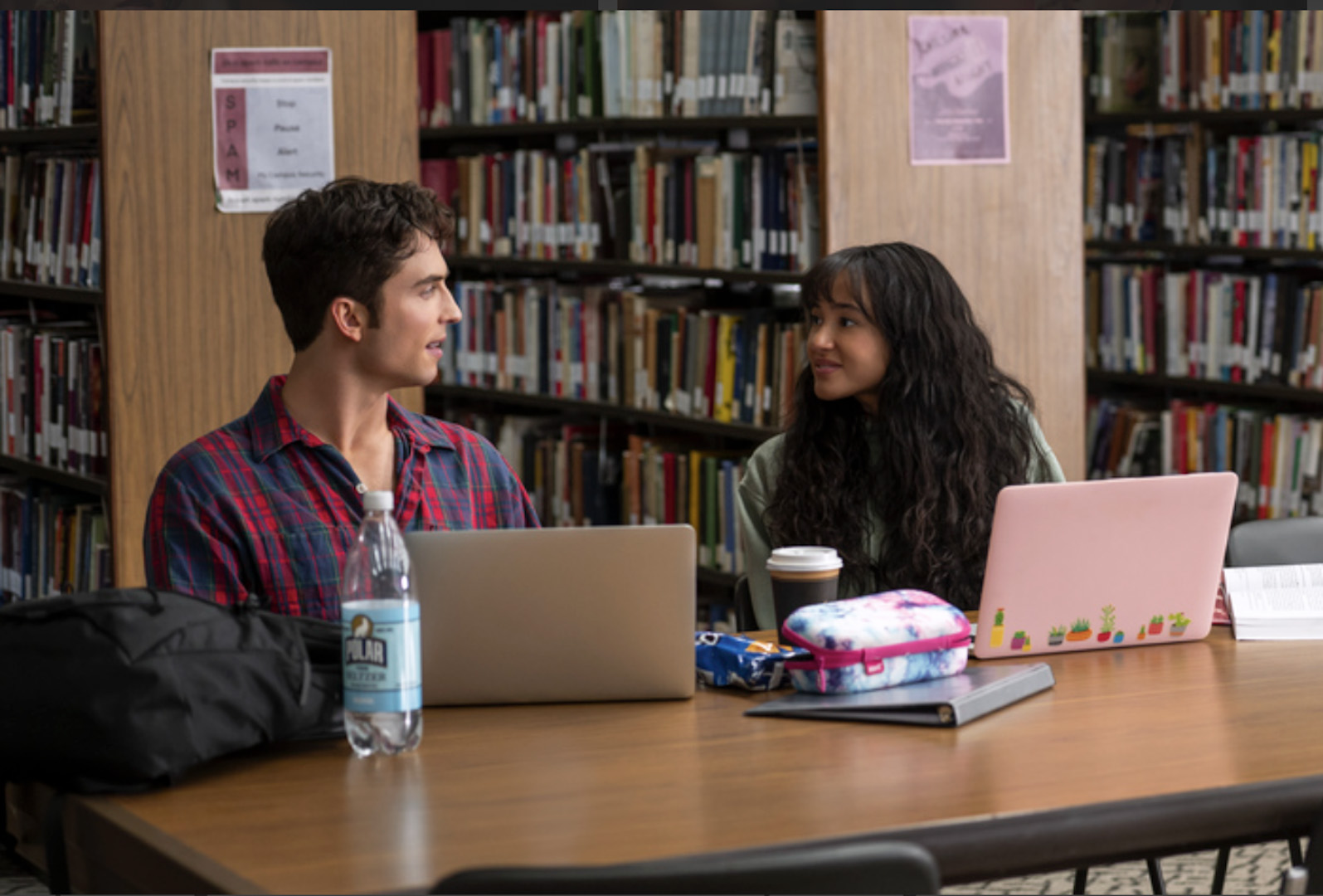
Amelia: I agree. And I haven't seen a coming-of-age in a while that's at this stage of life. At glance, you might think, why are we making a coming-out story for somebody in 2025, and he's 18? But people come of age, or come into their identity, at all different times in their lives. I think coming-of-age stories are really interesting at any stage. Carmen's coming of age too, figuring out who she is without the label of “Michael's sister.” Her brother has recently died, and she has to find her own identity. And college is a place where you reinvent yourself, where you meet new people, and you can be something else. What's interesting is that Benny's still trying to be the role he was previously, and Carmen's just trying out all different things. I think that's such a relatable experience.
And then on a personal level, my best friend since I was six came out to me when I was a senior in high school, and he's still my best friend, the love of my life, my brother, my everything. I see so much of our friendship in this project, and I see so much of myself in Carmen. I see myself in Benny, lying to his friends and hurting them because he doesn't know how to be real or be himself. Sometimes you don't like Benny, because it's like, “Why are you lying about that thing again?” But to me, it's special because it feels real.
And one other thing I'll say is even the character of Peter, a shallow jock guy, has so much depth to him. He's overcompensating, and he has depression, and he's taking Lexapro.
Todd: All the tracks start showing towards the end with him. And I bet in season two, he's going to be very interesting because this mirage that he's built up has completely crumbled. Like, his girlfriend's dumped him, everyone knows he's kind of a schmuck, he’s not the angel he thinks he is.
Amelia: Yeah. It's all presented as a joke, but it has a real emotional undercurrent of things that people actually go through. I think that's the genius of the whole series, that these people are rooted in such a relatable core and just overcompensate in different ways.
Todd: There's a running joke of guys being like, “I'm six foot!” “No, you're five ten.” Guys do that. Like, everyone is six foot. I think I used to say I was six foot! Those tiny little runners in the show are so real in the show and feed into the overcompensating theme.
Amelia: Yeah. In the finale, Adam [DiMarco] improvised a line when he and Benny are fighting. He says, “You think you're taller than me?“ and Benny goes, “...Yeah.”
Create together remotely, in real time
















.avif)


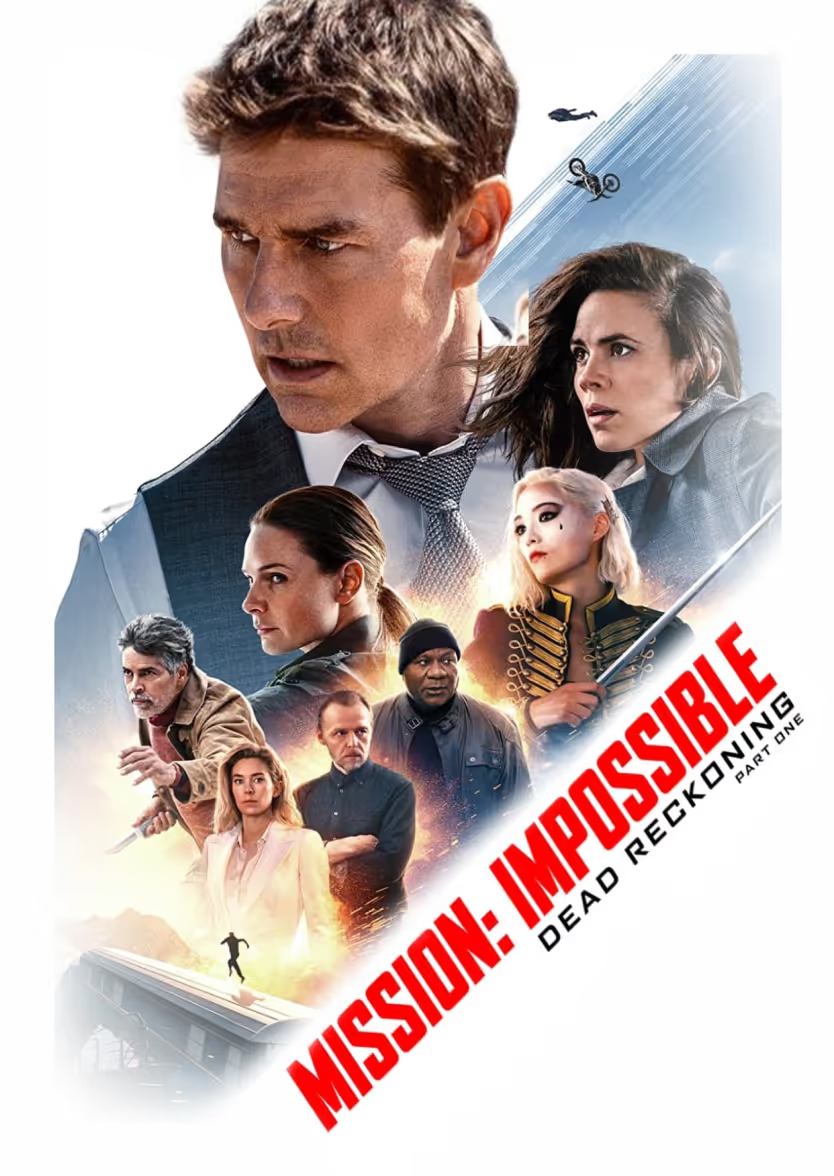




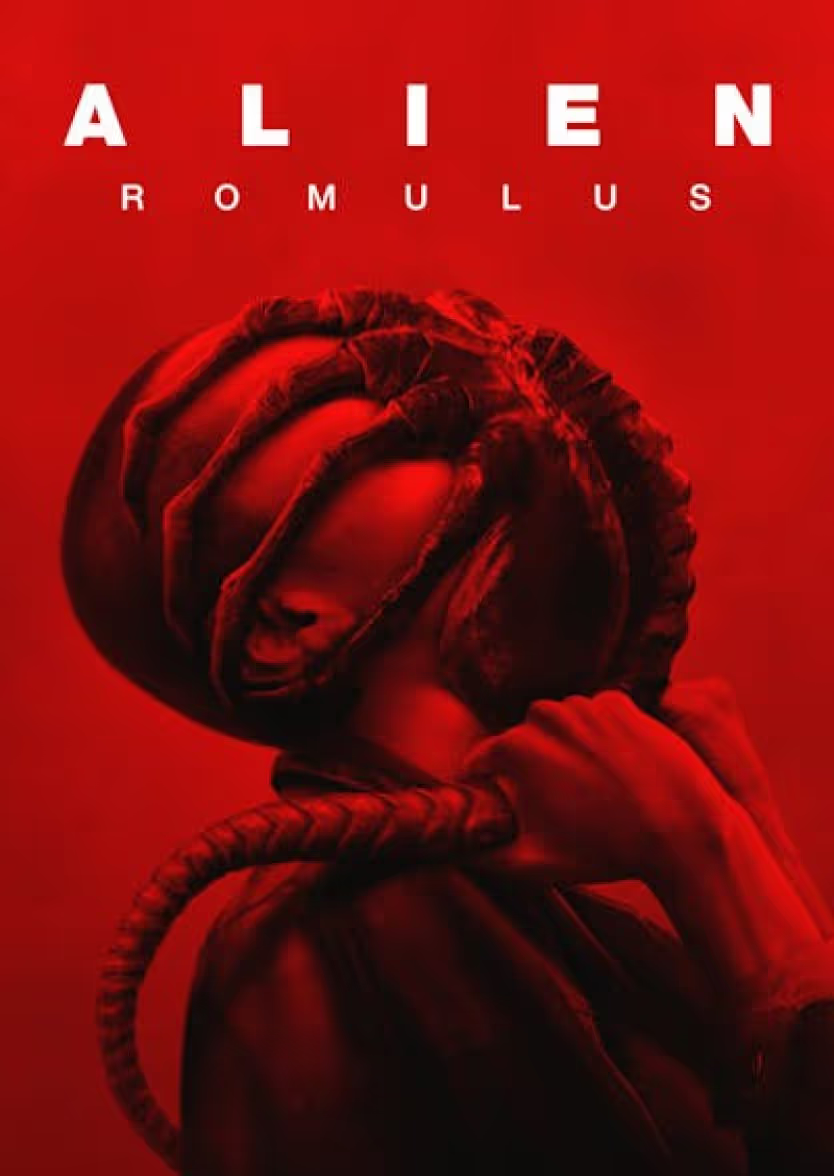

.avif)


.avif)